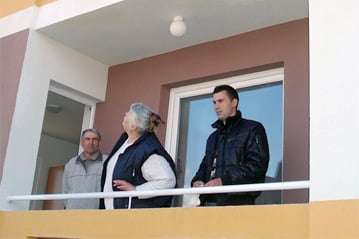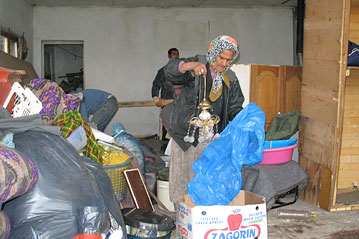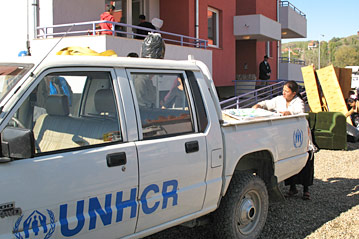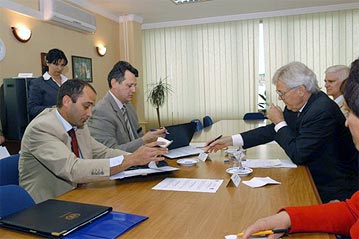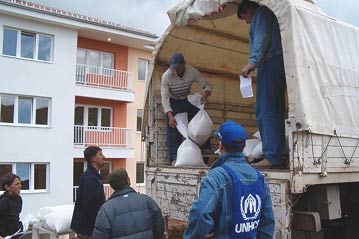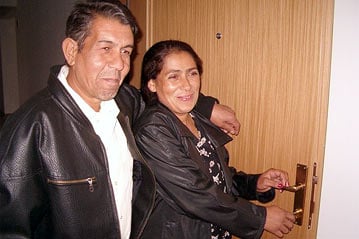FYR of Macedonia: dramatic increase in returns
FYR of Macedonia: dramatic increase in returns
More than 9,000 refugees have returned to the Former Yugoslav Republic of Macedonia (FYROM) from Kosovo since Thursday, mostly to Skopje, Tetovo and Kumanovo. The dramatic increase in returns coincided with the removal of an ethnic Macedonian roadblock near the Blace border crossing and the FYROM Parliament's first vote in favour of giving more rights to ethnic Albanians.
Returning Albanian families told UNHCR staff at the border that they decided to return mainly to get their children back in school, which opened this week. Some knew their houses had been damaged but said they will stay with host families in FYROM while they can repair their homes before winter. Others were worried about losing their jobs after up to six months away. The presence of NATO in FYROM is seen as another reason for the increased returns from Kosovo.
Although situation remains relatively calm in FYROM, many of the returnee families expressed concern about a security vacuum, particularly in rural areas around Tetovo and Kumanovo where fighting took place earlier. Some were worried that conflict might erupt again if NATO pulls out of FYROM at the end of the month. UNHCR appealed last week for an international security presence in FYROM to fill the security vacuum and help create conditions for the safe return of refugees and displaced persons.
UNHCR field teams continue to visit return areas and provide basic aid packages to returnee families as needed. In the village of Orlanci, 15 kilometres north-east of Skopje, a UNHCR team yesterday found about 800 villagers, or 90% of residents, had returned. A week earlier, only 300 villagers had gone back.
While UNHCR supports the right of all displaced people to go home, we are concerned that many of the returnee families return only to find that they cannot move into their original residences because of security concerns. Leaders of some 6,000 ethnic Albanian internally displaced persons (IDPs) in Kumanovo, for example, say they cannot return to their villages up in the hills because of police checkpoints on the road.
UNHCR is also gearing up to provide shelter repair and rehabilitation assistance to thousands of returnee families. Since July, more than 47,000 returns from Kosovo have been recorded. An estimated 33,000 refugees still remain in Kosovo, and another 76,000 IDPs have been registered by the [former Yugoslav Republic of] Macedonian Red Cross.

